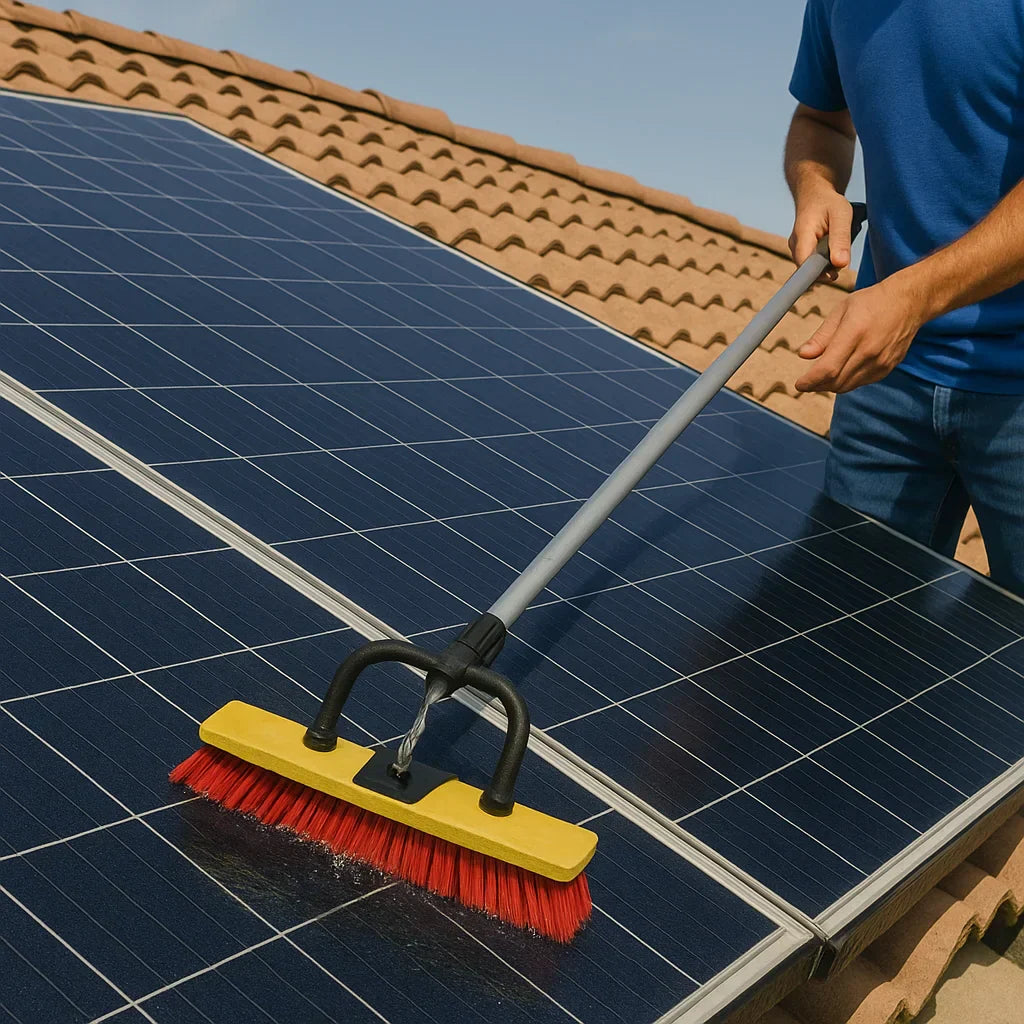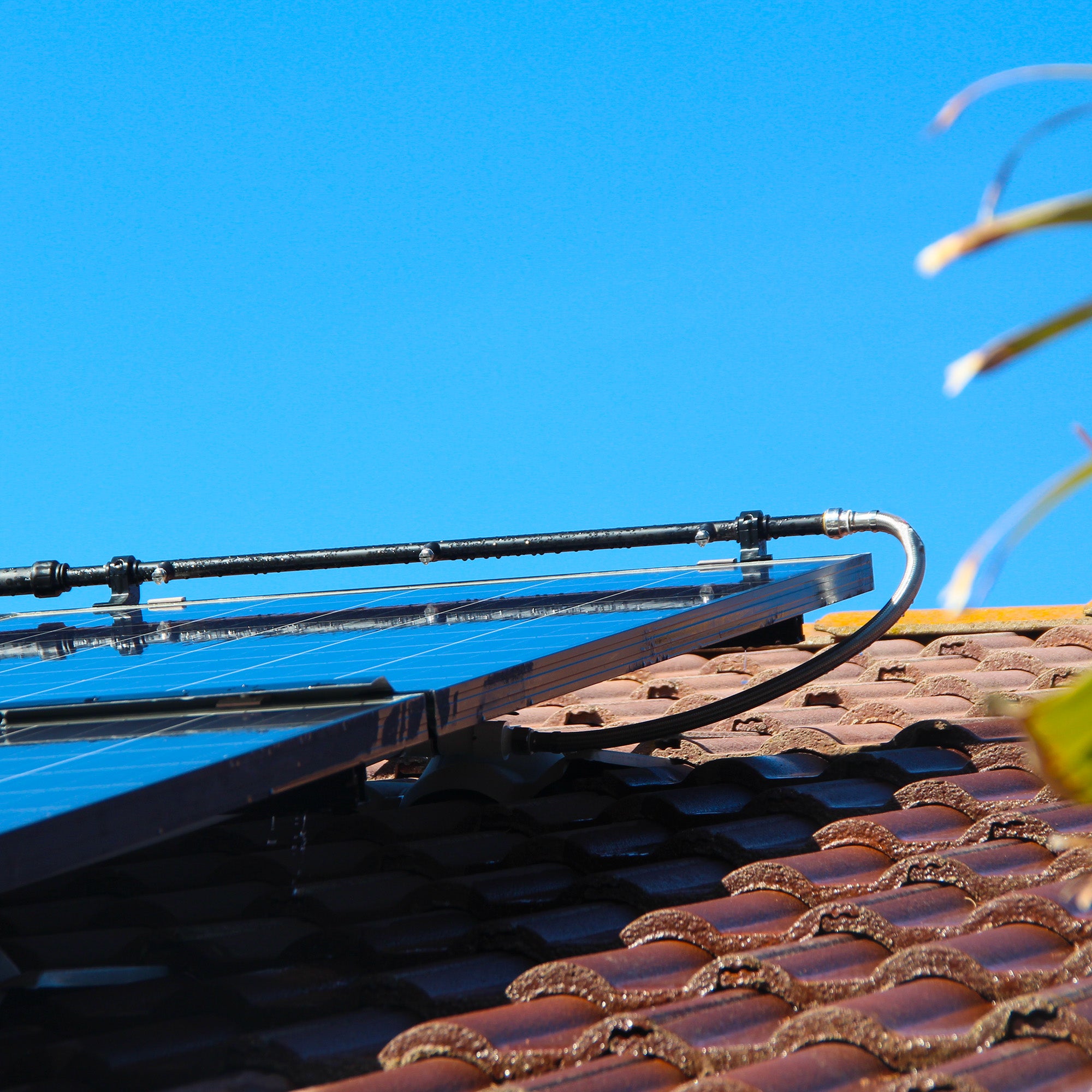Solar energy is often hailed as one of the cleanest and most sustainable energy sources. However, the efficiency of solar panels can be significantly affected by something as simple as dirt. While it might seem trivial, the accumulation of dust, grime, and other debris on solar panels can have a profound impact on their performance. In this blog, we’ll explore how dirt affects solar panel efficiency and what you can do to ensure your panels are operating at their peak.
The Relationship Between Dirt and Solar Panel Efficiency
Solar panels work by converting sunlight into electricity through photovoltaic (PV) cells. The more sunlight the cells absorb, the more electricity they generate. However, when dirt and debris cover the surface of the panels, they block sunlight from reaching the PV cells. This reduces the amount of energy produced, leading to a drop in efficiency.
Studies have shown that even a thin layer of dust can reduce solar panel efficiency by up to 5%. Over time, if left uncleaned, the accumulated dirt can lead to efficiency losses of 20% or more. This reduction in efficiency means that your solar panels generate less electricity, which can increase your reliance on grid power and reduce the overall savings on your energy bills.
Factors That Influence Dirt Accumulation
Several factors influence how quickly and severely dirt accumulates on solar panels:
1. Geographic Location: Areas with high levels of dust, pollen, or pollution will see more rapid dirt buildup. For example, desert regions or urban areas with high pollution levels are particularly prone to this issue.
2. Panel Angle: The angle at which your solar panels are installed can also affect how much dirt accumulates. Panels installed at a lower angle may collect more dirt and debris because they have less natural rainfall to wash them clean.
3. Weather Conditions: Weather plays a significant role in dirt accumulation. In dry seasons or regions with little rain, dirt can build up quickly. On the other hand, frequent rain can help keep panels clean, reducing the need for manual cleaning.
4. Local Environment: If your solar panels are near trees, birds, or industrial areas, they are more likely to get dirty. Bird droppings, for instance, can cause localized shading on panels, significantly impacting efficiency.
The Economic Impact of Dirty Solar Panels
The economic implications of dirty solar panels are often underestimated. Reduced efficiency means that your solar energy system is not performing at its full potential, leading to lower energy production and, consequently, higher energy costs. For commercial solar installations, this can translate to significant financial losses, as the return on investment (ROI) is directly tied to the amount of energy produced.
Moreover, dirty panels can also lead to increased wear and tear on the system. When panels produce less energy, the rest of the system may work harder to compensate, potentially shortening the lifespan of your solar equipment.
Maintaining Clean Solar Panels
To maintain optimal efficiency, it’s crucial to keep your solar panels clean. Here are a few tips to help you do just that:
1. Regular Inspections: Periodically inspect your solar panels for dirt, debris, and other obstructions. Regular inspections can help you identify issues before they become significant problems.
2. Cleaning Solutions: There are various cleaning solutions available, including automated systems that use water and brushes to clean panels. If you prefer to clean them manually, use a soft brush and water to gently remove dirt without scratching the panels.
3. Professional Cleaning Services: For larger installations or hard-to-reach panels, consider hiring professional cleaning services. They have the expertise and equipment to safely and effectively clean your solar panels.
4. Consider Environmental Factors: If you live in an area prone to dust storms or pollution, you may need to clean your panels more frequently. Monitoring weather patterns and adjusting your cleaning schedule accordingly can help maintain efficiency.
Conclusion
Dirt may seem like a small issue, but its impact on solar panel efficiency is significant. By understanding the factors that contribute to dirt accumulation and taking proactive steps to keep your panels clean, you can ensure that your solar energy system operates at its full potential. Not only will this maximize your energy production, but it will also protect your investment and help you save money in the long run. Remember, in the world of solar energy, cleanliness is not just next to godliness—it’s next to efficiency.








